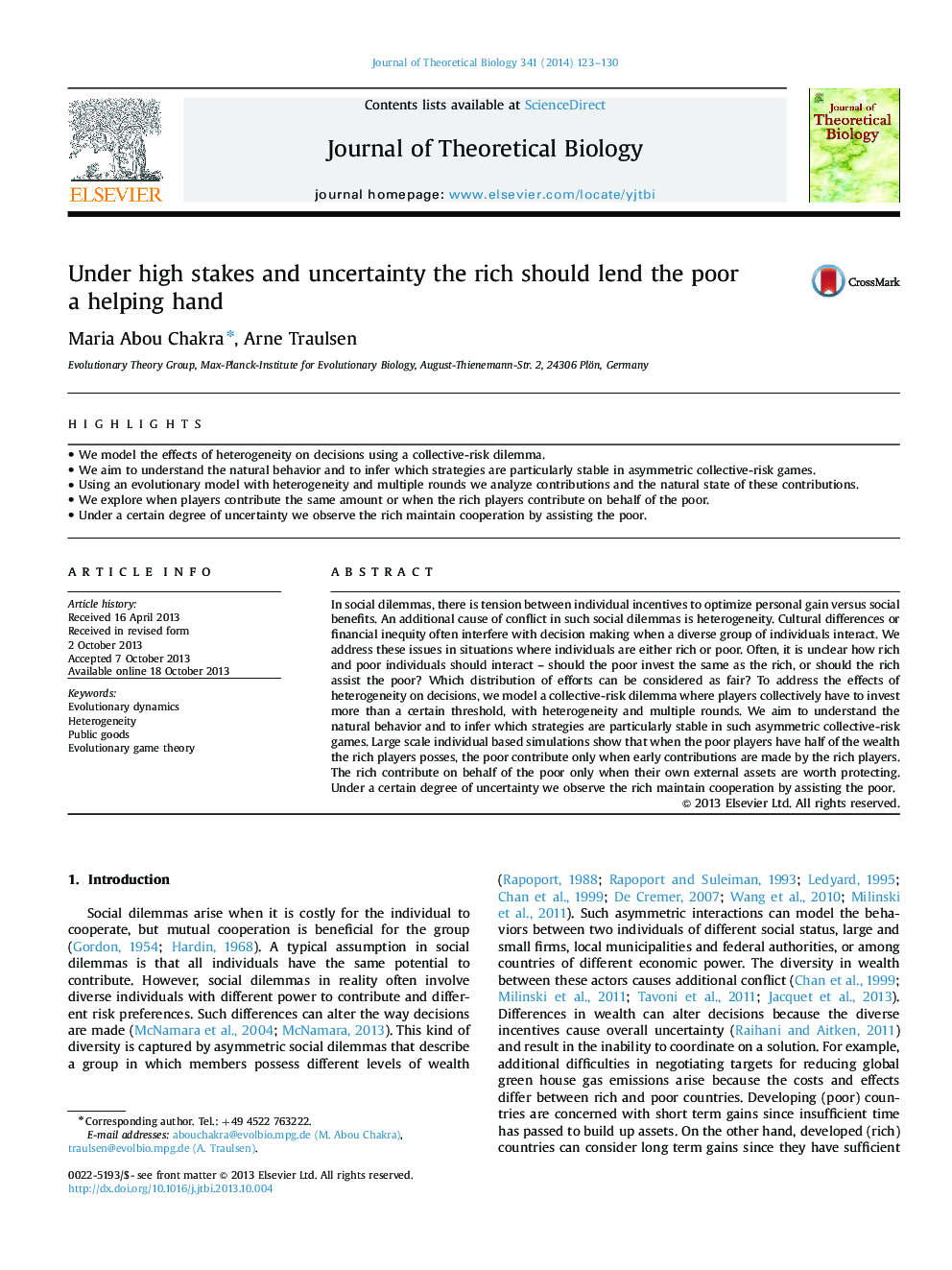| Article ID | Journal | Published Year | Pages | File Type |
|---|---|---|---|---|
| 4496201 | Journal of Theoretical Biology | 2014 | 8 Pages |
Abstract
In social dilemmas, there is tension between individual incentives to optimize personal gain versus social benefits. An additional cause of conflict in such social dilemmas is heterogeneity. Cultural differences or financial inequity often interfere with decision making when a diverse group of individuals interact. We address these issues in situations where individuals are either rich or poor. Often, it is unclear how rich and poor individuals should interact - should the poor invest the same as the rich, or should the rich assist the poor? Which distribution of efforts can be considered as fair? To address the effects of heterogeneity on decisions, we model a collective-risk dilemma where players collectively have to invest more than a certain threshold, with heterogeneity and multiple rounds. We aim to understand the natural behavior and to infer which strategies are particularly stable in such asymmetric collective-risk games. Large scale individual based simulations show that when the poor players have half of the wealth the rich players posses, the poor contribute only when early contributions are made by the rich players. The rich contribute on behalf of the poor only when their own external assets are worth protecting. Under a certain degree of uncertainty we observe the rich maintain cooperation by assisting the poor.
Related Topics
Life Sciences
Agricultural and Biological Sciences
Agricultural and Biological Sciences (General)
Authors
Maria Abou Chakra, Arne Traulsen,
